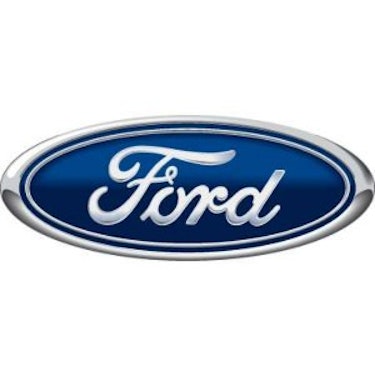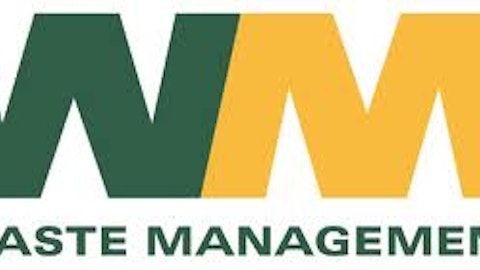
Speaking to Bloomberg, Mr. Mulally said that Japan was “absolutely” engaging in currency manipulation, which is undermining Ford’s ability to make a profit in overseas markets given the edge that Japanese companies have with a weak national currency. Supposedly, the threat that Ford Motor Company (NYSE:F) may be seeing comes in its quest to establish a stronghold in China, as demand for luxury cars like Lincoln, a Ford subsidiary, increases thanks to a growing middle-class.
Competitive landscape
If Japanese car makers like Toyota Motor Corporation (ADR) (NYSE:TM) and Honda Motor Co Ltd (NYSE:HMC) can export with little cost (considering that the yen is also weaker than the Chinese yuan, another currency under American economic scrutiny), this could jeopardize not only Ford Motor Company (NYSE:F)’s plans for the future but also the plans of other European and American car companies in the region. It’s even encouraging lawmakers from automotive-intense districts to prevent Japan from participating in a trans-Pacific trade deal, which critics say will encourage the imbalance between Japanese automakers and their American rivals, resulting in fewer opportunities for shared economic growth.
As much as this pro-America push looks good politically for Ford in the eyes of Washington, D.C. lawmakers and the American people, it loses traction on the spreadsheets once the numbers are crunched.
One complaint is that 90% of Japan’s auto sales are domestic, making that nation an effective “closed market.” The main problem with this assumption is that it doesn’t take into account the same monetary forces that Ford Motor Company (NYSE:F) sought to criticize. Japan is an export-driven economy, which is why they place value in a weak currency, which has been the case for much of Japan’s post-World War II history. Imports, especially from the US, are therefore more expensive than buying a similar product domestically.
Sales and profits
When this comes to cars, it is up to a company like Ford to one-up Japanese rivals like Toyota Motor Corporation (ADR) (NYSE:TM) and Honda Motor Co Ltd (NYSE:HMC), which have no problem operating in America. The Honda Accord is still one of the leading sellers in its class, selling better than the Ford Motor Company (NYSE:F) Fusion thanks to better handling and energy efficiency, stats that Japanese makers have excelled at for years.
Mr. Mulally’s other claim that the currency manipulation is undermining profits also has little foundation. Yes, Ford’s profits dropped by 1.2% last quarter, which may be where the CEO is getting this hypothesis from. However, Ford Motor Company (NYSE:F) has grown by approximately 36.2% in share price since mid-November, when the yen devaluation began. This is actually better than the 20.9% increase Honda had during the same time frame, and almost double the 19.6% inflation rate the yen experienced vs. the US dollar.
Toyota still outran Ford with a 55.2% increase in share price, but this is mainly due to the automaker’s quick rebound from the 2011 earthquake that rocked Japan. This in addition to strong sales numbers in the US with cars like the Prius and the Camry. Toyota reported a 2.3% sales increase year-over-year, and was the #1 retail manufacturer for May. Prius sales increased by 10% and the Camry still remains the best-performing car in the US, selling over 36,000 units this past year. Simply put, Ford Motor Company (NYSE:F) is being outdone in its own home market because it still doesn’t have a successful answer to Toyota’s continued dominance.
Investment analysis
This doesn’t mean Ford is a bad stock. In fact, despite what Mr. Mulally would like Americans to believe, Ford isn’t terribly hurt by currency manipulation any more than direct competition from companies like Toyota or Honda Motor Co Ltd (NYSE:HMC). It is still a strong company with a forward P/E of barely 9.0, and an E/P ratio of 9.9%. In addition to a dividend of $0.40/share, Ford Motor Company (NYSE:F) is a strong competitor in the automobile industry, and has huge room for growth thanks to the growing Chinese market that is still hostile to Japanese makers like Toyota and Honda. This gives Ford more maneuverability than its Japanese competitors with an ever-growing consumer base that is more welcome to American investment than Japanese investment, regardless of the yen’s status.
Ford Motor Company (NYSE:F) is also a better investment right now than Honda Motor Co Ltd (NYSE:HMC), which shows that there seems to be more confidence in Ford’s future outside the CEO’s office than inside. Honda has a higher P/E of 11.6 as well as a lower E/P ratio of 7.1%. The dividend is higher at $0.82/share, though a low profit margin at 3.7% doesn’t make it worth the price compared to Ford’s valuation.
Toyota more or less has the same problem that Honda Motor Co Ltd (NYSE:HMC) has compared to Ford, which is a high forward P/E of 11.6 and a lower E/P ratio of 6.4%. It does have a strong dividend of $1.36/share, and a healthy 4.4% profit margin, which puts it on par with Ford in terms of affordability for one’s dollar; but like Honda, the fact that it is Japanese, it won’t have access to the Chinese market that Ford Motor Company (NYSE:F) has, which is where the money will be in the future for car makers looking to compete globally.
Bottom line
So crow about the yen all you want Mr. Mulally, but here’s the thing, your company isn’t doing all that bad. Fight with your cars, rather than your words. You can actually win that fight.
John McKenna has no position in any stocks mentioned. The Motley Fool recommends Ford. The Motley Fool owns shares of Ford Motor Company (NYSE:F).
The article Alan Mulally Needs to Chill Out originally appeared on Fool.com.
John is a member of The Motley Fool Blog Network — entries represent the personal opinion of the blogger and are not formally edited.
Copyright © 1995 – 2013 The Motley Fool, LLC. All rights reserved. The Motley Fool has a disclosure policy.



